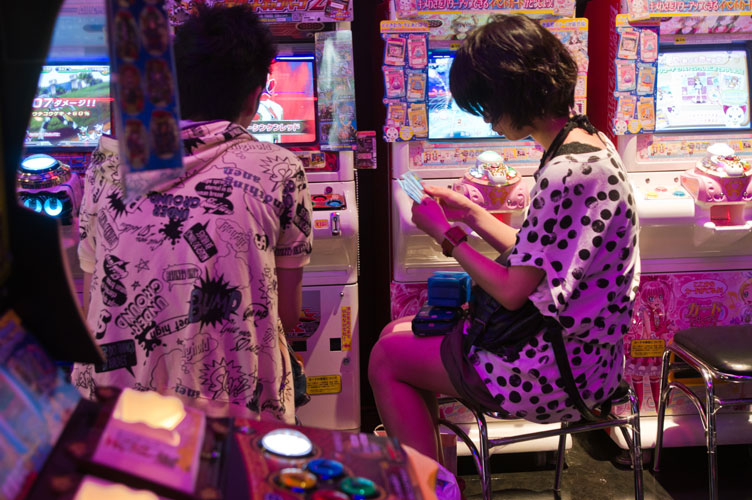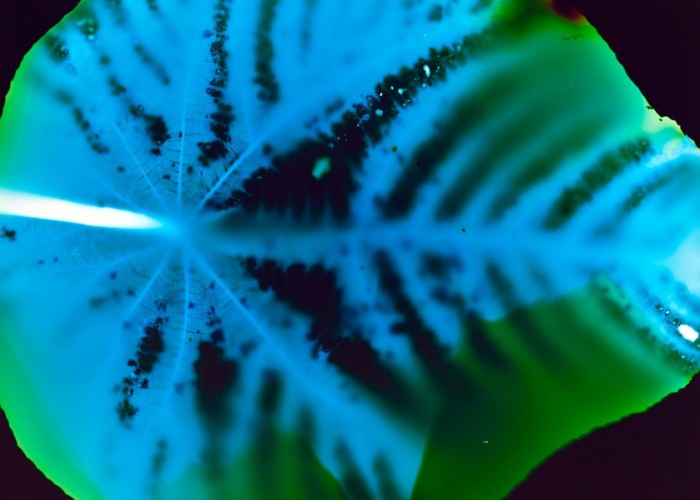The only happy ending for a love story is an accident (excerpt)
J.P. Cuenca
translated by Elizabeth Lowe
Introduction by the Spanish translator Martín Caamaño
translated by Melissa Kitson
“Through languages we learn something about ourselves, about our baseless anxiety, melancholic and vain,” wrote Brazilian writer Rubem Braga. I learnt Portuguese by ear. In the house of my father, who went to live in Rio de Janeiro in 1987. There, I absorbed the language of the locals – his wife, his friends, the house help – but more than anything, I soaked up his sparse Portuguese. A Portuguese stripped of its intrinsic musicality, lacking theatricality and sweetness. A Portuguese without sotaque. We know when we truly inhabit a language we no longer need to translate it mentally, assuming it naturally and subconsciously instead, without feeling obliged to compare it all the time to our native tongue. When I was reading O único final felz para uma história de amor é um acidente the opposite happened to me. Halfway through I couldn’t stop myself from translating it in my head, though still without suspecting I was going to become its translator. Perhaps it was because of the book’s neutral tone, emotion-less, like when you send a text to a line phone and the words are reproduced by the answering machine. That was the sound of Cuenca’s prose: machine-like, without sotaque. The obvious lack of ‘Brazilianess’ in the story, so rooted in Japan, extended to Cuenca’s Portuguese. His language is stripped down, slipping from its own grasp, turning sparse and strange. This was what I set out to capture, feeling more than once that – as Braga notes – “it’s language itself that’s wrong, we’re right.”
1
Before Mr. Atsuo Okuda opened the box, everything was dark. In fact, there was nothing to be illuminated before Mr. Okuda opened the box. If Mr. Okuda had never opened the box, nothing would exist. The world began only at the instant that Mr. Okuda opened the box and said the word. He said: Yoshiko. And Yoshiko became my name. After Mr. Okuda said Yoshiko, I gained, in addition to a name, many beginnings and an ending. I begin at the tips of my fingers, in the strands of my hair, on the soles of my feet, the nipples of my breasts, the skin that covers the emptiness in my body and the entire surface that makes me who I am. I could not be anything else because I have this body, and I only have this body, I am this body.
And the purpose of this body is just one thing: to serve Mr. Okuda.
Mr. Okuda is my master, but he did not make me. My creator is Luvdoll Inc., located on 4-5-28 Nishi-Kawagushi, in the city of Kawa- gushi, province of Saitama. My creator followed detailed instructions from Mr. Okuda, whose order number was 2358B. Five copies of order number 2358B were circulated for sixty-five days through different departments of Luvdoll Inc. The order said that I should have dark brown eyes (Pantone 4975C), pearly white skin #5, breasts, the sinusoid model, weighing 220 grams and 92.5 centimeters in diameter, a belly button .8 cm deep and an extra small vagina #2, with pubic hair in a vertical cut, 8 cm depth and 4 cm in circumference.
Other details were added in conversations between Mr. Okuda and Luvdoll Inc., since Mr. Okuda is a stickler for detail and this encouraged Luvdoll to introduce several new variations in its production line. Among the minute modifications new to Luvdoll Inc. that were introduced by Mr. Okuda were the curvature of my feet and the thickness of the bones of my clavicles and hips.
Mr. Okuda wanted my bones to be prominent, and they are. Mr. Okuda did not at any time identify himself to Luvdoll Inc. He paid fifty million yen for this customized project, which makes me the most expensive doll ever produced in Japan.
Mr. Okuda is a well-known poet and he announced that he had stopped writing years ago. This is a lie, because Mr. Okuda recites poetry to me, saying that he could have paid much more than fifty million yen for me because I am perfect, and because I am perfect, I am also the only person with whom he shares his poetry. Mr. Okuda told me this in a poem that he wrote between the lines of another poem.
Mr. Okuda addresses me in verse.
Mr. Okuda does not need to recite his verses for me to understand them. I know what he wants to say when he looks at me. I take orders from his silence because I am this body and this body has only one purpose, which is to serve Mr. Okuda, even if it’s listening to his poems about my perfection, about the cypress trees on a street in Shikoku, about birdsongs, or even, about poetry itself, a theme very dear to Mr. Okuda that he also inserts between the lines of other poems about many other topics, some that I can barely understand, and thus the poems and the lines of the poems multiply and combine infinitely, and through them Mr. Okuda makes me see not just the beautiful feelings he has for me but also for the world outside, and what is above him and below him, because I have never left nor will I ever leave this house that is my house and also Mr. Okuda’s house.
And, if I think about it, really, my house, my only house, is Mr. Okuda, himself.
2
Under the reflection of red lights on the wet asphalt, the nocturnal submarine sails under the foundation of buildings, between electric cables, sewage tunnels, and the subway. The pieces of this submerged vessel are bugs on telephones, cameras, and microphones hidden in rooms and one-way mirrors in bathrooms all over the city. Our frogmen, workers who monitor the movements of anyone worth watching, can break into mailboxes and follow anyone for as long as Mr. Okuda deems it to be necessary.
The equipment feeds the monitors and the amplifiers in a small room in my father’s basement, that he calls the Periscope Room. It’s the cockpit of his anonymous observation post. Seen from the door, the bank of monitors look like the eye of a giant fly.
That’s what I learned, growing up, from my father, Mr. Atsuo Okuda: to observe. To observe and to remain invisible.
Since the days grow ever longer for Mr. Okuda, and the old man dreams while sleeping in an embrace with the doll Yoshiko almost all the time, the job of operating the periscope falls to me. It’s my inheritance, he would say. “It’s what will be left of me, more than my books,” he would say.
Mr. Lobster Okuda’s periscope, my inheritance, would not work without the help of Mr. Suguro Shibata, professor of the Association of the Harmonious Fugu of Tsukiji. Mr. Shibato owes favors to my father and, besides everything else, he is handsomely paid to supply wild fugu and to do the dirty job of espionage. A word, by the way, that my father detests — he prefers to call this activity “observation.”
I saw Suguro Shibata just once, when I was a child, almost thirty years ago. My only recollection of him is his smell. Mr. Shibata stinks of rotten seaweed.
If I only met Mr. Shibata once, that does not mean that I wasn’t being watched by him on innumerable occasions during the last decades. Piled up in the Periscope Room are thousands of Betamax tapes, VhS tapes, and then silver dVd discs, with images of my life, from adolescence to the moment that this story ends. I got used to the surveillance from an early age — I learned how to watch others by being watched by my father.
I discovered the Periscope Room in the basement a few years after I started chasing women. In it, organized by date and time of day, are clandestine recordings of my first sexual encounters in the motels of Shibuya, and also conversations, arguments, and reconciliations at meals and on excursions and during the afternoons of my adolescence.
With time, I boarded the submarine with my father and together we began to sail in pursuit of our object of study through the city of invisible people, through the city where people from all over our great Japanese nation come to be forgotten, through the asymmetrical city that carries within it all others and none of them.
In such moments, Mr. Lobster Okuda utters words in his dreams that enter into mine:
“One day you will understand that the only possible ending for a love story is an accident without survivors. Yes, Shunsuke, my little leech, my little idiot fugu: an accident without survivors.”
*
Read the original in Portuguese
*
Thank you Tagus Press !
[ + bar ]
Lions
Iosi Havilio translated by Andrea Rosenberg
And in the middle of the day came the night . . . Down the hill, all made of shadows, the Protagonist... Read More »
Passagem Literária da Consolação [são paulo]
Julián Fuks translated by Sarah Bruni
Call it bookstore anxiety disorder. I know I’m not the first to suffer from this affliction, and I won’t be the... Read More »
Knocking on Keret’s Door
Masha Kisel
In Etgar Keret’s Suddenly, a Knock on the Door (2010), thirty-five humorously unexpected plots develop with the predictable timing of... Read More »
Hoag Holmgren
reniform
free-arm comfort of raptor shadows splashing skin with dusk among the dwarf pines shaped by wind eyes carved on the antlertipped spear haft remember the damselfly sifting through mulberry fumes the... Read More »


![Passagem Literária da Consolação [são paulo]](http://www.buenosairesreview.org/wp-content/uploads/fuera-700x500.jpg)





 sending...
sending...